New Details Revealed in Corruption Case as Oaks Cops Plea, Ending Political Career
Former state Sen. Nathaniel T. Oaks pleaded guilty to two felony fraud charges Thursday in a political corruption case that federal investigators had built against him, acknowledging in U.S. District Court in Baltimore that he had engaged in a bribery scheme later revealed to be a sting operation.
Within hours of formally resigning his Maryland Senate seat, Oaks, 71, stood before U.S. District Court Judge Richard D. Bennett and pleaded guilty to two of 10 charges brought in a November indictment – one count of wire fraud and one count of “honest services” wire fraud.
The court scheduled sentencing for 11 a.m. on Tuesday, July 17.
Oaks was charged with nine fraud charges related to a bribery scheme in which he took $15,300 from a “Mike Henley” an FBI undercover source who posed as a Texas businessman interested in building apartments in Baltimore. Those activities took place before Oaks knew of the federal probe, which he finally learned about on Jan. 9, 2017, when confronted by FBI agents.
The single obstruction count stems from allegations that while Oaks was supposed to be cooperating with federal investigators, he tipped off a target in the bail-bonds industry, known in court documents only as Person #1, to the existence of a corruption probe.
On Thursday, Oaks stood beside his assistant federal public defender, Lucius T. Outlaw III, as Bennett went over the plea agreement in painstaking detail to make sure the former legislator understood what he was signing. For the most part, Oaks answered Bennett’s questions about whether he understood with a “yes,” simply and quietly.
At one point Bennett asked whether Oaks was satisfied with his legal representation.
“I have the utmost faith and confidence in Mr. Outlaw,” he told the judge.
Another assistant public defender in the Oaks case, Rebecca S. Talbott, joined them after an earlier court appearance elsewhere.
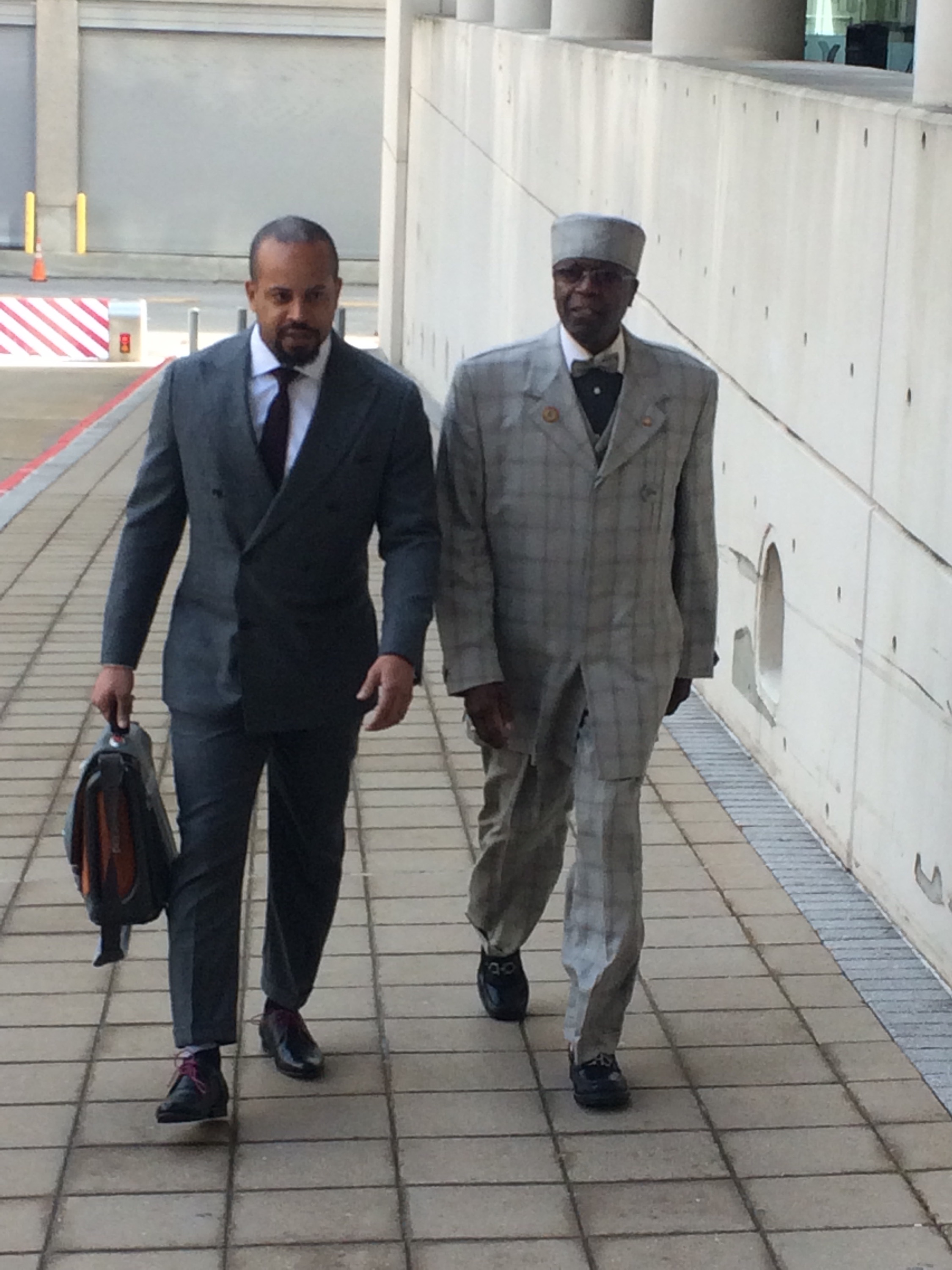
Former state Sen. Nathaniel T. Oaks (right) arrives at federal court in Baltimore Thursday with his defense attorney, Lucius T. Outlaw III, prior to pleading guilty to two corruption charges. Photo by William F. Zorzi
After Bennett’s explanation of the plea agreement, Kathleen O. Gavin, the lead assistant U.S. attorney in the case, read a summary of the statement of facts into the record, some of which offered new details of the investigation. Of particular note were tidbits about the goings-on in Annapolis in 2017, when Oaks was wearing a body wire for the government.
With Gavin at the prosecution table was Leo J. Wise, another assistant U.S. attorney, and two FBI agents involved in the Oaks investigation. Throughout the proceeding, Stephen M. Schenning, acting U.S. Attorney for Maryland, sat in the courtroom and watched.
The crux of the government’s case – and the basis for what Oaks pleaded to Thursday — revolved around the legislator’s interactions with “Mike Henley.”
In return for three payments totaling $15,300, Oaks twice used his General Assembly letterhead to falsely promote a “Henley” project to a U.S. Department of Housing and Urban Development official — another FBI front, unbeknownst to the lawmaker.
The third time, Oaks asked the Maryland Department of Legislative Services to draft a $250,000 bond bill for “Multi-Family Housing Development at Druid Park Lake” in the 2017 legislative session. Henley had asked Oaks for the pre-filed bond bill so that he could show his bank he had political support for his housing project, he told the lawmaker.
Oaks’ ‘predicament’
But the newer details of the investigation surround the obstruction of justice indictment, what was the 10th charge against him. Gavin read some of those details into the record; others were spelled out in statement of facts, dated March 27, signed March 28 and filed Thursday in federal court:
Oaks was supposed to meet Henley on Jan. 9, 2017, in a hotel room in downtown Baltimore, but instead was greeted by two FBI agents, who told him that he had been under investigation for two years and that “Henley” worked for the government. They told him they knew of the three payments Henley had paid him – and showed him video clips of the payments.
The agents told Oaks he was not under arrest, but the lawmaker acknowledged he was “in a predicament.”
Oaks then told the agents about his contacts and activities with a variety of people, including the individual identified as Person #1 in the obstruction of justice indictment.
The legislator – then still a member of the House of Delegates – told the agents he had accepted free roundtrip airline tickets to Las Vegas from Person #1 in 2015 and 2016 and that the person had also paid for a party Oaks hosted at a local restaurant in August 2016.
The lawmaker told FBI investigators “he believed that Person #1 would be willing to make corrupt payments to him and other politicians in order to advance Person #1’s business interests,” according to the statement of facts.
After telling the agents he wanted a lawyer, and after the agents were able to get one to respond from the Criminal Justice Act panel, Oaks continued his interview.
He went on to tell the agents that Person #1 helped pay for a birthday party for him at a restaurant in October 2015, and that he had paid for a Las Vegas hotel room for two or three nights in May 2016.
In fact, Oaks later told agents, Person #1 had paid for his hotel room and flight expenses to Las Vegas “on more than one occasion” and that he “always paid for Oaks’ meals when they dined together,” the statement of facts reads.
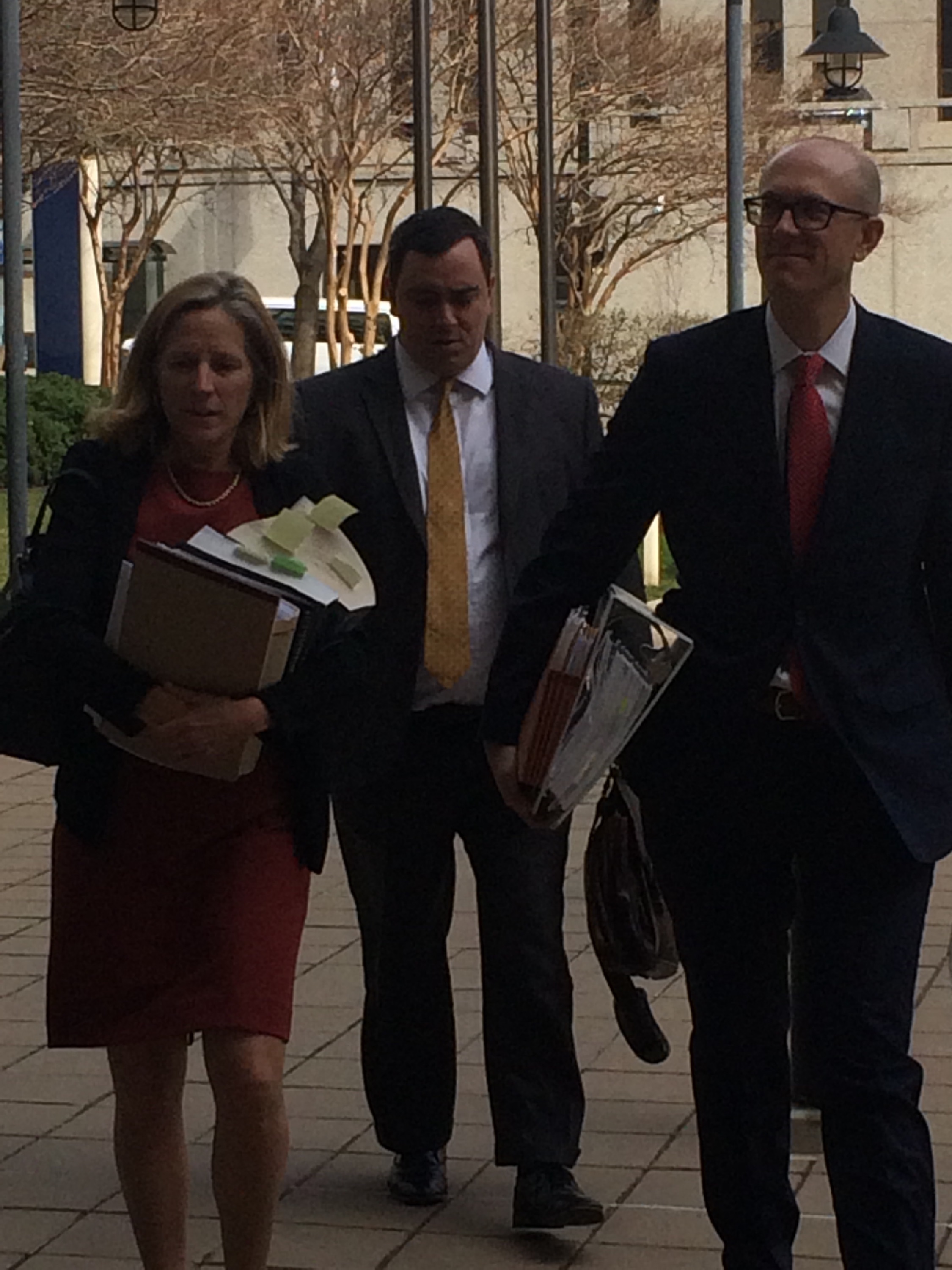
Prosecutors Kathleen O. Gavin and Leo J. Wise (right) outside the federal courthouse in Baltimore Thursday. Photo by William F. Zorzi
“Oaks agreed to cooperate with the agents as they investigated whether Person #1 would pay Oaks or any other politicians in exchange for official acts, including support for the bail bond legislation,” according to the statement of facts.
Oaks then agreed to wear a body wire and record his telephone calls — and to inform the agents if he had any sort of unexpected contact with Person #1.
“As the covert public corruption investigation continued,” the statement of facts reads, Oaks helped Person #1 contact other legislators for support of his bail bond legislation.
At the direction of the FBI agents, Oaks accepted $2,600 from Person #1 for car repairs. He also agreed to help Oaks avoid paying certain income taxes by first providing false receipts and then by promising to “loan” the legislator money to pay the taxes after the legislative session ended.
A couple of weeks after Oaks had complained to Person #1 about being unable to pay $2,750 for his car repairs, the two men had lunch at an Annapolis restaurant on Feb 23, 2017. During the meeting, Person #1 told Oaks to “slide your hand under the table.”
He did, and Person #1 handed Oaks an envelope containing $2,600 in cash. Later during lunch, Oaks agreed to talk to certain legislators about the bail bond legislation. Oaks gave the money to the FBI agents.
Weeks later, on March 17, 2017, Oaks and Person #1 met for lunch again and the lawmaker complained, in the course of discussing the bail bond legislation, that he needed tax advice because of too many health care deductions on his returns. Person #1 immediately offered to provide Oaks with fake receipts to cover those deductions.
Later the same day, the two men attended a St. Patrick’s Day party at an Annapolis bar. Oaks approached Person #1 and told him. “what we talked about, just say no,” or something similar, and walked away. Oaks did not tell the FBI agents about the contact.
Over the next two weeks, Oaks and Person #1 met in Annapolis and discussed the lawmaker’s tax problems. On March 29, 2017, Person #1 told Oaks that he would be at a caucus meeting in Annapolis the following morning and that he needed every vote possible for his bail bond legislation.
The statement of facts does not specify which caucus.
The next day, Oaks approached Person #1 outside the caucus meeting in the hallway outside the hearing room and said, “I’m going to ask you for something; just say no,” or something similar, the statement of facts reads.
Once again, Oaks did not tell the FBI about the contact.
Later that day, Oaks and Person #1 met in an Annapolis restaurant. Again, Oaks mentioned his tax problem – but this time, the federal agents noticed something different, a change in the demeanor of both men.
Finally, on March 31, 2017, the FBI agents confronted Oaks about the conversation – and he confessed that he had warned Person #1 about their surveillance.
“As a direct result of Oaks’ deliberate and intentional conduct in tipping off Person #1, covert investigation into Person #1’s corrupt act relating to Oaks and possibly other politicians was no longer viable,” according to the statement of facts.
The next week, the FBI approached Person #1 about his dealings with Oaks.
When confronted by the FBI agents, Person #1 told investigators he had known Oaks for about 25 years and that he had given Oaks and at least one other elected official “thousands of dollars in cash over a number of years.” Person #1 later admitted that he knew it was wrong to give cash payments to Oaks and other politicians and that he should not have done so.
Asked Thursday after Oaks’ plea whether Person #1 had been charged, Schenning, the acting U.S. attorney, said no. He declined to answer any other questions about any possible investigations his office was conducting.
Maximum penalty: 20 years
Oaks faces a maximum penalty of 20 years in prison, a fine of $250,000 and three years of supervised release in the case. Additionally, he must pay a $200 special assessment at his sentencing and could be ordered to make restitution.
The West Baltimore Democrat is also subject to a forfeiture order, subject to forfeiting any goods or property derived from his bribery scheme.
Bennett did say that he would impose concurrent sentences for Oaks, but noted that he had to wait for the presentence investigation report before considering what those terms might be. He also pointed out that the federal advisory guidelines call for a sentence of 8-10 years.
“I don’t presume that that range is reasonable, but that would be the advisory guideline range itself,” Bennett said. “There are other factors that will be considered, as well … by me before sentencing.”
After sentencing, the other eight charges against Oaks will be dismissed, Bennett said.
On Wednesday night, accompanied by his close friend, Larry Young, a WOLB-AM radio talk-show host who himself was expelled from the Senate amid ethics violations in 1998, Oaks met privately and briefly with Senate President Thomas V. Mike Miller Jr. (D-Calvert) to resign.
Oaks’ resignation note, which was not released Wednesday night, was made available Thursday.
In the one-page letter, effective 9 a.m. Thursday, Oaks told Miller that serving his district “has been an honor.”
“To eliminate all clouds that have hovered over the 2018 Legislative session due to any potential concerns or questionable activities on my behalf, it is with deep regret, respect and my love for Baltimore City, the Maryland General Assembly, its leadership, my legislative colleagues and my constituents in the 41st District, that I resign my position as state senator for the 41st legislative district,” he wrote.
“Thank you for granting me this opportunity to serve,” Oaks wrote.
Last month, Miller stripped him of his Finance Committee seat, upon recommendation of the Joint Committee on Legislative Ethics. pending the outcome of his federal trial – which had been scheduled to begin April 16 — and the committee’s own investigation afterwards.
Oaks was most recently a member of the House of Delegates for 22 years, until Feb. 10, 2017, when he was appointed to the Maryland Senate, replacing Lisa A. Gladden, who resigned her seat due to health problems.
Earlier, Oaks also had been a member of the House of Delegates, first elected in 1982, but he was forced to forfeit his seat in 1989, after being convicted of theft charges related to double-billing his legislative expenses. That conviction was changed in 1990, at his request, to probation before judgment by a Baltimore judge.
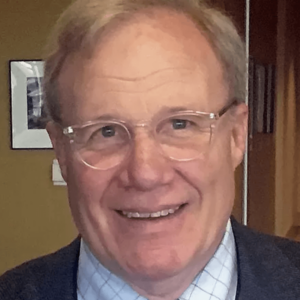
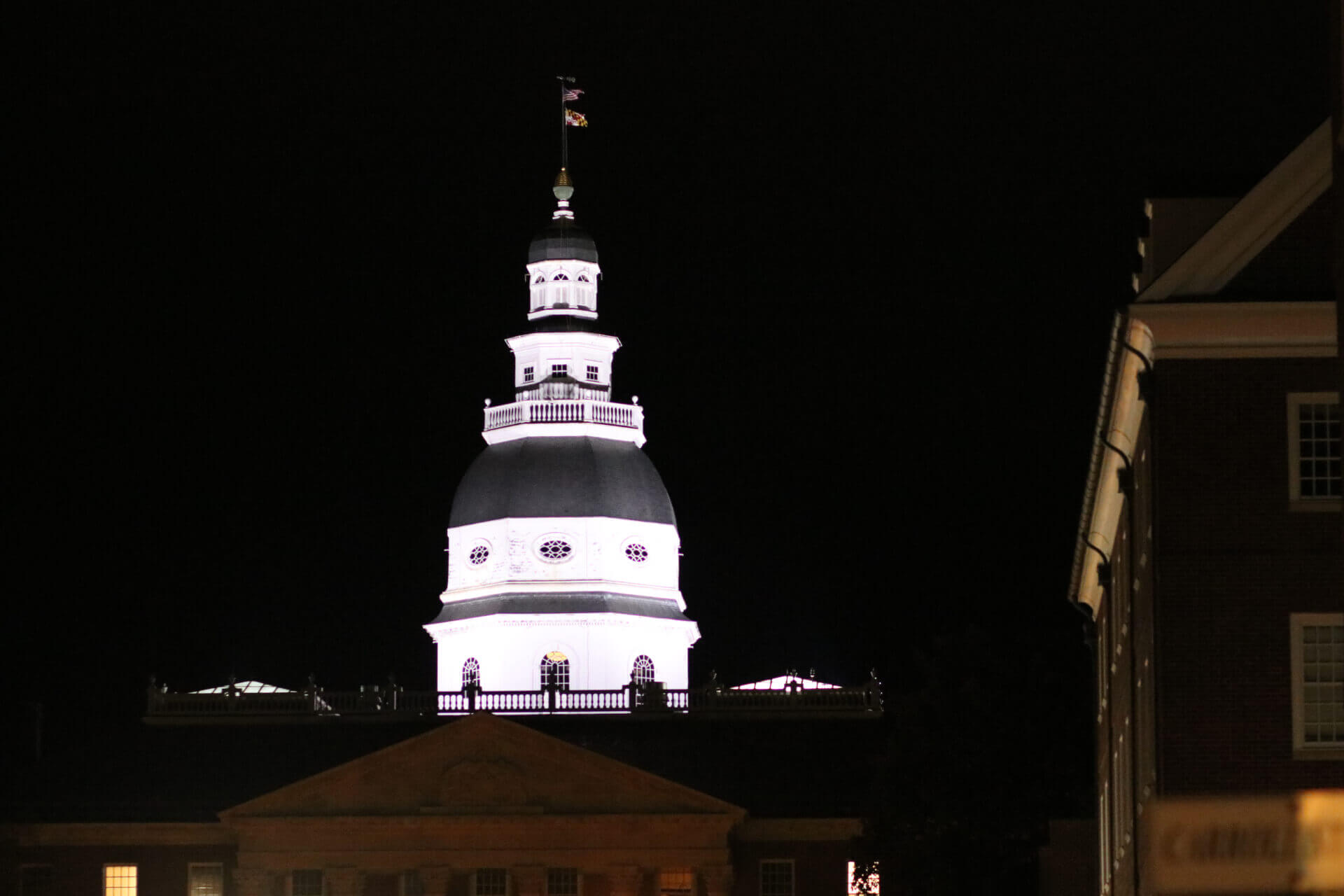
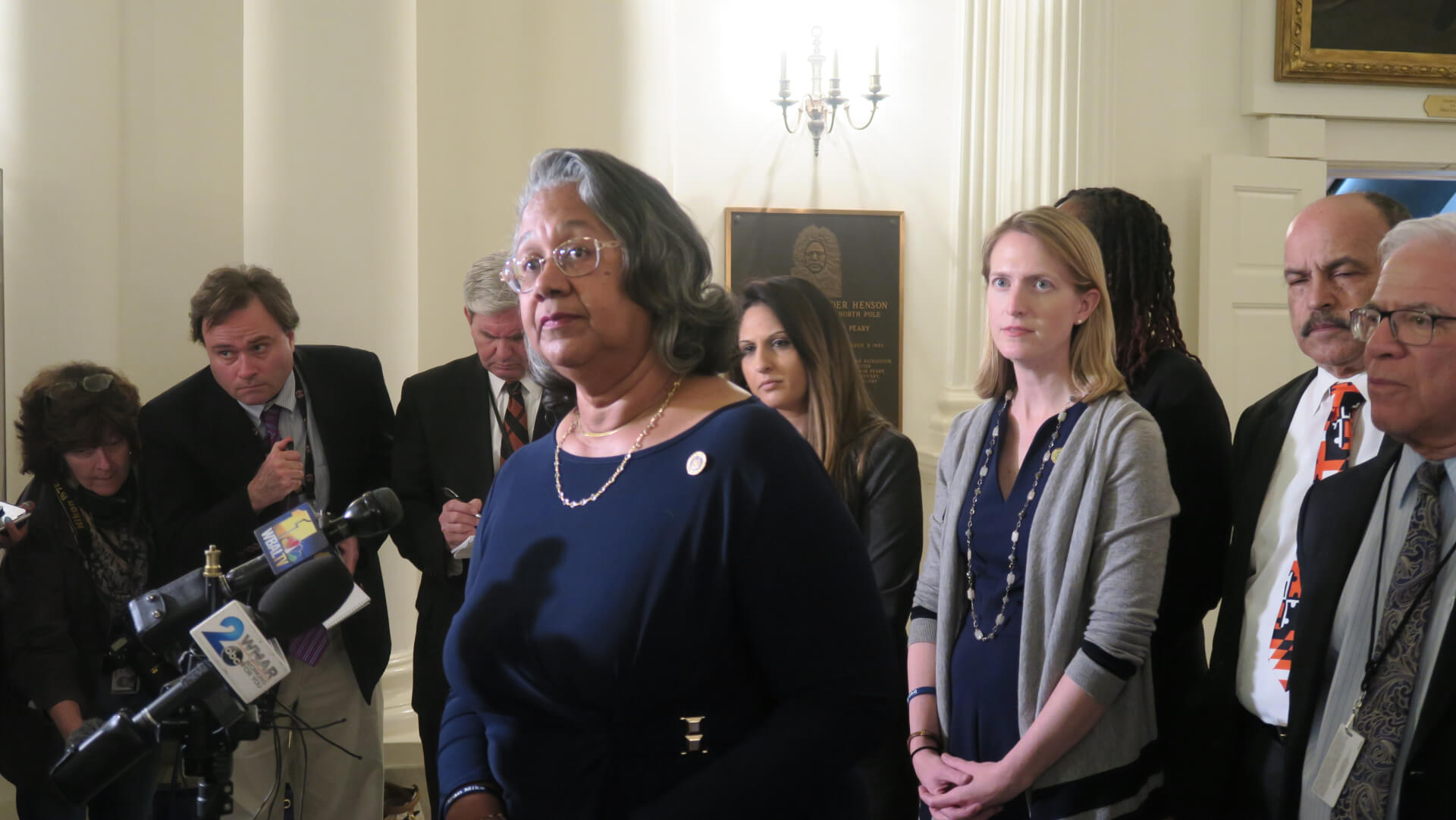
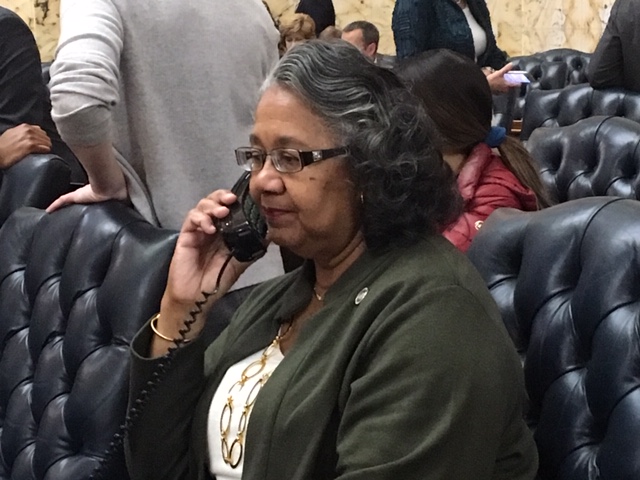
 Creative Commons Attribution
Creative Commons Attribution